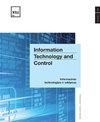基于bert的土耳其语Instagram评论COVID-19情绪分析迁移学习模型
IF 2
4区 计算机科学
Q3 AUTOMATION & CONTROL SYSTEMS
引用次数: 5
摘要
首先在中国武汉发现的冠状病毒病(COVID-19)已成为全球流行病。土耳其的第一例报告病例于2020年3月11日宣布,也就是世界卫生组织宣布COVID-19大流行的当天。由于大流行期间社交媒体的密集和广泛使用,确定社交媒体的作用和影响(即积极、消极、中立)为我们提供了有关社会对事件看法的重要信息。在我们的研究中,我们在疫情的不同日期之间组成了两个数据集(即Dataset1, Dataset2),这些数据集由Instagram上关于COVID-19的评论组成,并分析了用户对疫情的感受和想法的变化。据我们所知,这些数据集是土耳其首次公开提供的关于COVID-19情绪分析的数据集。使用机器学习模型(即传统机器学习,深度学习和基于bert的迁移学习)对土耳其Instagram评论进行情感分析。在实验中,考虑了这些数据集的平衡版本(即resDataset1, resDataset2)以及原始数据集。基于bert的迁移学习模型在resDataset1和resDataset2中分别以0.7864和0.7120的宏观平均F1分值取得了最高的分类成功率。已经证明,在土耳其数据集中使用预训练的语言模型在分类性能方面比其他模型更成功。本文章由计算机程序翻译,如有差异,请以英文原文为准。
BERT-based Transfer Learning Model for COVID-19 Sentiment Analysis on Turkish Instagram Comments
First seen in Wuhan, China, the coronavirus disease (COVID-19) became a worldwide epidemic. Turkey’s first reported case was announced on March 11, 2020—the day the World Health Organization declared COVID-19 is a pandemic. Due to the intense and widespread use of social media during the pandemic, determining the role and effect (i.e., positive, negative, neutral) of social media gives us important information about society's perspective on events. In our study, two datasets (i.e. Dataset1, Dataset2) consisting of Instagram comments on COVID-19 were composed between different dates of the pandemic, and the change between users' feelings and thoughts about the epidemic was analyzed. The datasets are the first publicly available Turkish datasets on the sentiment analysis of COVID-19, as far as we know. The sentiment analysis of Turkish Instagram comments was performed using Machine Learning models (i.e., Traditional Machine Learning, Deep Learning, and BERT-based Transfer Learning). In the experiments, the balanced versions of these datasets (i.e. resDataset1, resDataset2) were taken into account as well as the original ones. The BERT-based Transfer Learning model achieved the highest classification success with 0.7864 macro-averaged F1 score values in resDataset1 and 0.7120 in resDataset2. It has been proven that the use of a pre-trained language model in Turkish datasets is more successful than other models in terms of classification performance.
求助全文
通过发布文献求助,成功后即可免费获取论文全文。
去求助
来源期刊

Information Technology and Control
工程技术-计算机:人工智能
CiteScore
2.70
自引率
9.10%
发文量
36
审稿时长
12 months
期刊介绍:
Periodical journal covers a wide field of computer science and control systems related problems including:
-Software and hardware engineering;
-Management systems engineering;
-Information systems and databases;
-Embedded systems;
-Physical systems modelling and application;
-Computer networks and cloud computing;
-Data visualization;
-Human-computer interface;
-Computer graphics, visual analytics, and multimedia systems.
 求助内容:
求助内容: 应助结果提醒方式:
应助结果提醒方式:


